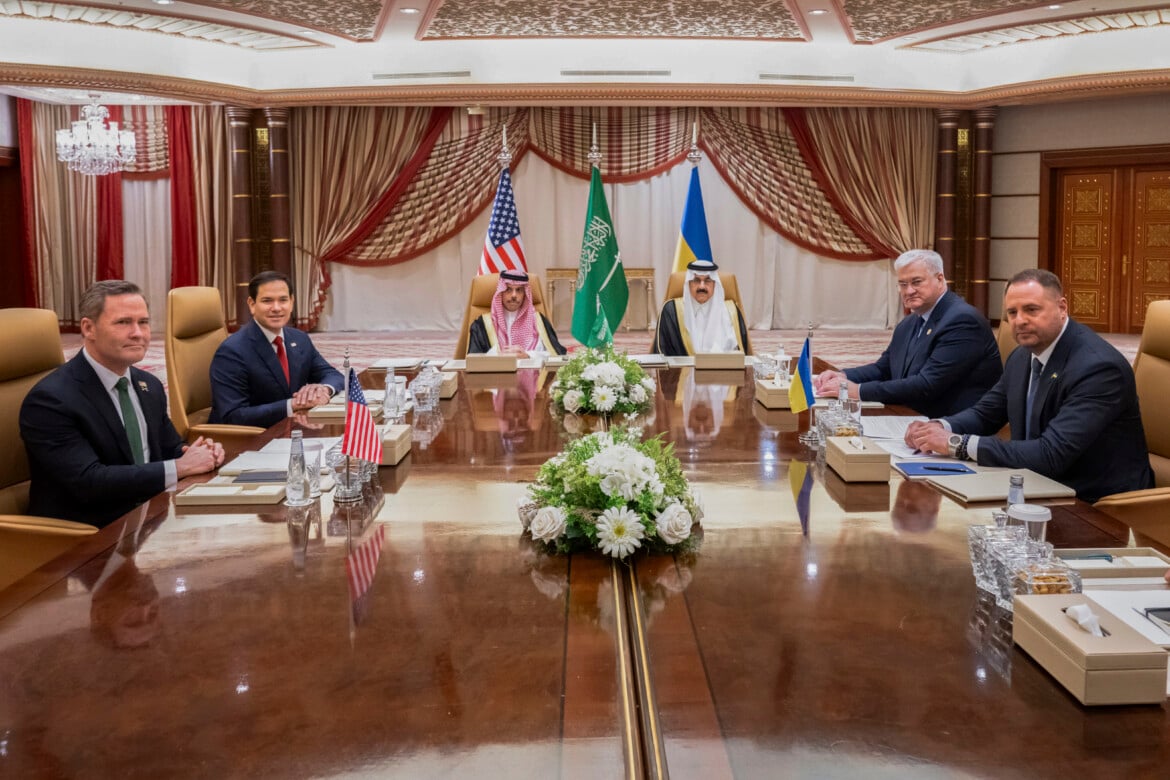Analysis
Kyiv agrees to a ceasefire, but will Putin?
Although Zelensky had reiterated that it was necessary for his country to arrive at a just peace, with clear security guarantees that would avert a resumption of the conflict, it was clear to all that this time, the Ukrainian delegation really did start off with “no cards to play,” as Trump has repeatedly said in recent times.

Donald Trump's line was pushed through and Ukraine agreed to sign a plan for a full and immediate 30-day ceasefire. Not just a halt to attacks in the air and at sea, as Kyiv had proposed on the eve of the meeting with the U.S. delegation in Jeddah, but a halt to fighting “on the entire front line.” In return, the U.S. restored the supply of military aid and intelligence and assured that the Rare Earths Agreement would be signed “within a few days”.
“Ukraine is ready to stop shooting and start talking,” said the head of Washington's delegation upon leaving the talks, “and now it'll be up to [Russia] to say yes or no.” Trump hopes to submit the plan to Kremlin officials as early as Tuesday or Wednesday and talk to Putin within the week. Moscow Foreign Ministry spokeswoman Maria Zakharova said she wouldn’t “rule out contacts with US representatives in the next few days.”
“Ukraine is ready to accept this proposal—we see it as a positive step and are ready to take it,” Zelensky commented on X. “Now, it is up to the United States to convince Russia to do the same. If Russia agrees, the ceasefire will take effect immediately.”
U.S. Secretary of State Rubio went even further, clarifying that they were hoping the Russians will say yes right away: “if they do, then I think we made great progress. If they say no, then we'll unfortunately know what the impediment is to peace here.” To mark this moment of celebration among the U.S. administration, Trump made it known that he would invite Zelensky back to the White House a second time after the disastrous press conference that created the rift between the two.
The truth is that the accelerated progress towards the proposal that came out of the talks in Saudi Arabia also stems from that meeting. While the Ukrainians hoped to resume negotiations on the rare earths deal, which had been abruptly interrupted by the fight with the U.S. leadership before the world’s cameras, the tycoon imposed tough conditions for the resumption of diplomatic relations. Either Kyiv would agree to starting negotiations with Russia in a very short time, or the relations with the overseas ally would not be resumed. The threat was made effective by Trump's abruptly ordered suspension of the supply of military aid and intelligence.
Less than a week into the disruption, the Kyiv military was already beginning to complain of an increasingly difficult situation, with international media showing the units in Kursk in retreat and the transparent attempts by commander-in-chief of the Ukrainian Armed Forces Syrsky to present it as a “redeployment to more advantageous defensive positions” instead of a retreat. For Zelensky and his people, the priority in Jeddah was to get the supply pipeline reopened as soon as possible; as Chief of Staff Andriy Yermak had announced before entering the revolving doors of the Jeddah conference hall, “we are ready to do everything to achieve peace.”
Although Zelensky had reiterated that it was necessary for his country to arrive at a just peace, with clear security guarantees that would avert a resumption of the conflict, it was clear to all that this time, the Ukrainian delegation really did start off with “no cards to play,” as Trump has repeatedly said in recent times.
Kyiv’s last striking move was to hit Moscow directly with a drone barrage the night before the talks. Two dead and several wounded, buildings punctured by explosions, fires in the skies over the Russian capital: a warning right before the talks, as if to say “we are not defeated on the ground, we can still fight.” And that is precisely how the attack was presented, claimed almost immediately by the Ukrainian leadership. The Kremlin, of course, didn’t take that vey well, and announced that on such premises, any talk of a truce was undermined at the outset. But those statements seemed forgotten soon after the triumphant announcement in the evening: not only did Moscow not close the door on a possible 30-day ceasefire, but said that it was willing to meet with U.S. representatives as soon as possible.
Steve Witkoff, Trump's special envoy for the Middle East and one of the chief negotiators with Russia, was already planning a trip to Moscow for Thursday, after the end of the Jeddah talks. Which suggests that the U.S. had already assumed there would be immediate contact with Putin after meeting with the Ukrainians. It will probably be Witkoff himself who will take the full text of the agreement to the Kremlin and submit it to the Russian president for a response to report back to his boss. Whether or not the agreement suits Putin's generals remains to be seen. Moscow would probably have preferred a partial truce, like the one proposed by Zelensky, so it could have continued its attacks by land in Donetsk and Kursk, where it has managed to achieve some successes in recent weeks, albeit at the usual sluggish pace of the Russian military.
Now, however, this is “what’s on the table,” as Rubio peremptorily pointed out. A table at which smug Washington is in the role of a dealer with a rigged pack of cards: the Ukrainian government's resistance to capitulation has been bent with a threat of abandonment and retaliation on military and intelligence supplies. The Russian challenger with stone-cold eyes can only smile to see the game turn to his advantage: for him, the winning hand was dealt on Nov. 4.
Originally published at https://ilmanifesto.it/kiev-dice-si-al-cessate-il-fuoco-di-30-giorni-ora-la-parola-e-a-putin on 2025-03-12
